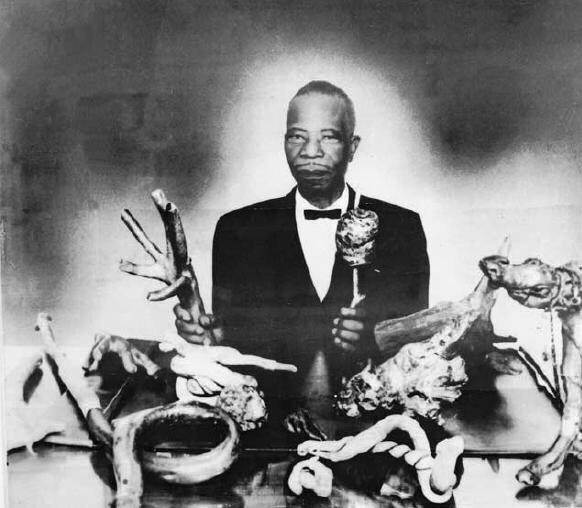Estrelda Alexander was raised in an urban, black, working-class, oneness Pentecostal congregation in the 1950s and 1960s, but she knew little of her heritage and thought that all Christians worshiped and believed as she did. Much later she discovered that many Christians not only knew little of her heritage but considered it strange. Even today, most North Americans remain ignorant of black Pentecostalism.
Black Fire remedies lack of historical consciousness by recounting the story of African American Pentecostal origins and development. In this fascinating description she covers
- what Pentecostalism retained from African spirituality
- the legacy of the nineteenth-century black Holiness movement
- William J. Seymour and the Azusa Street Revival
- African American trinitarian and oneness Pentecostal denominations
- the role of women in African American Pentecostalism
- African American neo-Pentecostals and charismatic movements
- black Pentecostals in majority-white denominations
- theological challenges of black Pentecostalism in the twenty-first century
Whether you come from an African American Pentecostal background or you just want to learn more, this book will unfold all the dimensions of this important movement's history and contribution to the life of the church.
REVIEWS
"This particular book is especially welcome. African American Pentecostals have become a major force in American (and world) Christianity, but there is a serious lack of well-documented studies. Estrelda Alexander does an excellent job filling that lamentable gap."
Mark Noll, Francis A. McAnaney Professor of History, University of Notre Dame
"Pentecostalism is one of the most vibrant and important developments in modern Christianity. In this welcome and much-needed book, Estrelda Y. Alexander demonstrates convincingly that this global work of the Spirit has to a large extent emerged from and continues to be fanned into flame by the African American community. Outsiders who think a few more controversial variations of 'black fire' sometimes look like 'strange fire' will be glad to learn that the African American church has able internal critics of its own outliers. Every Christian--indeed, everyone interested in the present and future of Christianity--needs to know this story."
Timothy Larsen, McManis Professor of Christian Thought, Wheaton College
"
Black Fire offers an expansive historical overview of African American Holiness-Pentecostals and their often overlooked contributions to the early development, dissemination and current vitality of the modern Pentecostal movement from its inception to the present. Students and scholars of African American religion and culture will appreciate its rich content, as well as its nuanced attention to matters of race, class, gender and generation."
Karen Kossie-Chernyshev, Ph.D., professor of history, Texas Southern University, Houston, Texas
"Dr. Alexander has gathered the major, minor, profound and pedestrian aspects of African American Holiness-Pentecostalism in a volume that seeks to provide a Rosetta stone for scholars, students, denominational historians and the general public. She is clear to state that this work is an endearing labor of love to articulate her experience as an African American Pentecostal worshiper, scholar and minister. This volume is the seedbed of a crop of readable studies in African American Holiness-Pentecostal history, theology and culture. A worthy investment in understanding the why, who, what and how of a century-old community of denominations linked to the book of Acts and 312 Azusa Street. Kudos!"
Dr. Ida E. Jones, historian, Calvary Bible Institute and Moorland Spingarn Research Center, Howard University, Washington, D.C.
"This book will provide its readers with a valuable overview of important monuments and figures from the past one hundred years. It presents a straightforward account of how African American Pentecostalism developed and changed over time. Because of the scope of this work, it will be helpful for general audiences who want to learn more about this topic or for use in an undergraduate course."
Monica Reed, H-Net Pentecostalism, May 2014
"
Black Fire provides a much-needed narrative that completes, and at times corrects, the general histories of both American Christianity and the Pentecostal and charismatic movements."
William Purinton, International Bulletin of Missionary Research, Vol. 36, No. 2
"Alexander is one of the few historians of black Pentecostalism who have attempted to synthesize the story of black Pentecostalism within one volume. This is a very challenging task that she does exceptionally well given the myriad number of black Pentecostal denominations. Her work is a first of its kind and a timely, valuable resource for students and scholars of African American religion in general and African American Pentecostalism in particular."
Jonathan Langston Chism, Religious Studies Review, Vol. 42, No. 4, December 2016
























